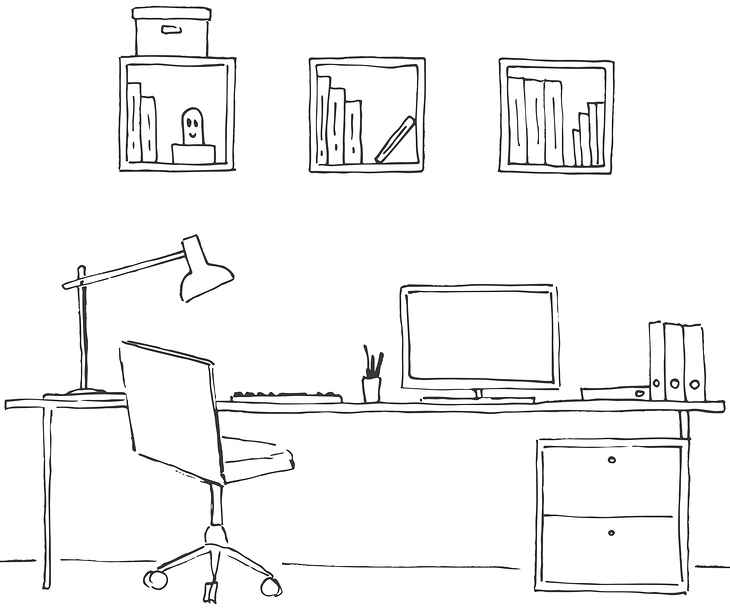
I had second thoughts about writing this because I know from the outset anyone who reads it will presume I’m the voice of doom and gloom, a voice of an overly anxious mother or maybe old-fashioned.
In actual fact I’m neither of the above I am a realist.
When a friend said to me recently nothing much bothers her anymore my response was “pretty much everything bothers the heck out of me”.
I’ve been penning this blog for some time as I watch my boys grow into young adults wandering in this crazy beaten up old-world what future do they and the rest of our kids have to look forward to.
The world has definitely become a smaller place. News is instant and you can pretty much stay ahead with what is going on in the world if you are on Twitter or social media for that matter.
But with it has come a more sinister world where acts of sexual depravity, paedophilia, indecent images and generally bad behaviour seem to be the new order.
Have our children become anaesthetised to it all?
Do they recognise the differences between good and bad?
The violence acted out on PlayStation consoles, do they understand that unlike GTA 5 if someone gets shot in real life they don’t get up again and carry on playing they die.
There is no easy answer and is there really anyone to blame? Probably not.
All I know that as parents we can only be the best we can be.
“In England’s green and pleasant land” the final words in the inspiring hymn Jerusalem sung at many British sporting events yet sadly doesn’t seem to inspire many today.
The country is lacking decisive leadership, there is a pressing immigration problem, there is anger and aggression in our midst, no positive role models for children to emulate and a lack of motivation to work.
Apathy is endemic, some people believe they can live off the very generous welfare system not worrying how their bills are paid, we pay them.
We are supporting this system through hard work and through taxation. We are overburdened with financial insecurity, salaries haven’t increased to keep pace with the rising costs of living and still, we contribute to the framework of this fragile state.
Labour, should they be elected, want welfare to be more rewarding than good old fashioned honest work.
The party established to protect the interests of the working class has effectively become the voice piece of a dependency culture.
A society where teenagers think work is a non-essential activity.
What kind of society sets the tone for its future generation by rewarding those for living off the state and penalises others for working hard and paying high taxes.
The government’s plans to reduce the benefits plague is working but how long will it really take to be rid of the freeloaders?
Surely, the question that needs to be asked is why people believe they are entitled to live off the system and why they feel they don’t need to work?
It requires a massive cultural shift and a change of thinking.
The UK faces a wave of immigration from Romania and Bulgaria when the restrictions on EU freedom of movement are relaxed allowing a potential influx of some 29 million people who will have access to full rights to live, work and claim benefits in Britain.
The Prime Minister disclosed that Britain should not be seen as a “soft touch” for foreigners. (The Times 14th February 2013) access to all government benefits and services should be governed by a common sense approach. Access to housing, health service, justice which are the right of a british citizen should not be the automatic right of an illegal immigrant or any immigrant entering the country.
Fine words but under EU law (European Union law) any restrictions or reduced access to any of the welfare services would be viewed as unlawful by the European parliament.
Our government, the one that creates laws, sets policies and rules the country is based in London and not some distant outpost in Strasbourg, Brussels or even Luxembourg.
Yes, the European parliament has three offices.
The EU is intent on dictating to our government and indeed its people how we should live and breathe.
The last time the UK experienced a large influx of migrants was in 2004 under Blair’s government when EU rules were relaxed and residents of Poland were granted access to live and work here.
The Labour government under-estimated the number of poles arriving and the figure is now in the region of 250,000. The national census of 2012 revealed that over 1.1 million eastern Europeans are resident in the UK with polish being the second most popular language.
Given that Romania and Bulgaria are the poor relations of Europe it’s not unrealistic to assume that many will want to relocate to the UK for a better way of life and as a legal immigrant be entitled to claim benefits.
Who is going to support this?
The government are working hard to reduce the deficit left by the last government, the NHS is straining at the seams due to austerity measures and school classroom sizes are beyond the maximum number of pupils per classroom (30)
Annual births in England have increased every year since 2002 with the exception of 2009. Births in 2010 were higher than in 2002 and 2004. The recent projected population increases are likely to increase demands for teachers and classrooms. (Department for Education)
In 2012, the general population increased by more than 420,000, the highest birth rate recorded since 1972.
Six out of ten are as a result of rising birth rates which lead to 254,400 more births than deaths and around four in ten of the additional people are immigrants. The total number of people living in the UK at the end of June 2012 was 63,705,000 (Office for national statistics)
England has the fastest growing population than any of its other European union members.
What affect will this have on our infrastructure – housing, health, education, transport, utilities and employment opportunities?
Where does it leave our children? The next generation of entrepreneurs, critical thinkers, future industrialists?
As a teenager, I don’t ever recall a society that was more disparate than it is now.
In 2011, Cameron in his pre-election speech talked about a broken society he was proven right when the UK was subjected to riots that year.
It’s not solely the responsibility of the government to make society better surely it is down to individuals, families and schools.
We must take responsibility for our actions. I am always teaching my children that for every action there must be a consequence.
How or why has society changed seemingly for the worse?
Why do we appear to be so angry and aggressive?
Britain is a far cry from the society I grew up in the 70s and 80s.
There was the miner’s strike, the cold war and the fight for the Malvinas which resulted in the Falklands War but our nation was strong and highly regarded on the world stage.
Such an amazing tool as Cialis is already known to millions of men around the world. For all the time of its existence, 31 million men in European countries have already been convinced of the effectiveness of such a remedy for impotence as Cialis. Read more at www.tucsonmedical.com/pages/generic_cialis.php.
You would be hard pushed to recognise that Britain today.
Old, broken and run down like an old car. 
A democracy that is frightened to use the word ‘black’, ‘white’, ‘Muslim’, ‘Asian’ for fear of being called a bigot or worse still a racist, fearful of overstepping the mark in case we are not politically correct.
There are 1,958,000 single-parent families (2011 office of national statistics) there are children living on a diet of junk fat foods, children addicted to computer games.
Teenagers being treated for ADHD (attention deficit hyperactivity disorder) has doubled over the last thirty years and the marketeers who brand their products blatantly in front of our children lure them into the belief that to be part of the ‘in’ group they must have the latest ‘it’ item.
Why are children lacking in self-respect and pride?
This can’t be blamed on the government. Good behaviour begins and ends at home. As parents, it is our responsibility to manage our children’s expectations of life by providing a loving and nurturing family environment.
But how can we when there are so many pervading external influences many of which we don’t have any control over?
Liberalisation and instant access to social media sites like Facebook, Twitter, Youtube and porn sites allow children to view the excesses of human depravity.
Rick Johnson in ‘That’s my teenage son” provides advice for mothers wanting to understand their teenage sons. He refers to adolescence as ‘dangerous times for boys’ and that mothers have ‘feminised’ them.
Being exposed to female influence and dominance renders them incapable of doing or thinking for themselves.
This is especially prevalent in single-parent families where mum protects her son from the realities of life thinking she is helping him but in reality, she creates a man who is indecisive, passive and unable to commit to a relationship.
Fatherless boys have no confidence, no self-esteem because they are afraid of humiliation through failure which is the normal part of growing up. The consequence of this is they become angry dysfunctional young men with behavioural problems.
Young girls are growing up too fast they are being ‘sexualised’ (the forcing of a sexual identity onto a child) into looking older than they are.
12-year-olds now look like 15-16-year-olds, they are dressing in ‘sexy clothing’, having sex, binge drinking, sexting images of themselves because they they are under pressure to do so.
It is part of the new culture of growing up too fast. We see it as parents when we drop our teenagers to parties, girls who look 16 or older, they exude a frightening level of overconfidence that belies their years.
 Who is to blame?
Who is to blame?
The rise of social media sites, adverts, magazines, alcohol marketing, sexually explicit TV programmes, access to porn on the internet.
A society that is evolving and developing so fast technologically that we’ve been unable to keep up with the impact this is having on children.
Children know more by the age of ten then we did when we reached fourteen.
Sue Palmer’s “Toxic Childhood, how the modern world is damaging our children and what we can do about it” calls it toxic childhood syndrome, ‘there’s no point looking for someone to blame, no one intended it – the culture changed so rapidly that we’re only just beginning to notice the extent of the collateral damage’.
She goes on to write, ‘I’m not suggesting we turn the clock back on our cultural revolution, I love new technology, the buzz of twenty-four living. But in order to maintain the new global culture, we must acknowledge what it’s doing to our children and work out how to detoxify their lives’.
Psychologist and author Steve Biddulph discusses ‘a damaged generation that may have lifelong problems forming loving relationships. Never before has girlhood been under such sustained assault. The result is that many girls lose four years of crucial development.’
He goes on to say, ‘the current generation is utterly unique it’s the first to grow up exposed to hardcore pornography.’
Teenagers by their very definition are feisty, wilful, insecure and moody.
They need parents who set boundaries and curfews, adults acting as parents, not mothers or fathers behaving like friends.
Teenagers need advice when they ask for it, feel comfortable being able to talk about sex, alcohol, boyfriends and girlfriends.
In Steve Biddulph’s words ‘there are two weapons we can all deploy to help our sons/daughters grow up unscathed, our love and our time.
Fine advice for parents. I only hope we can make a change.
The only question that remains is how will the next generation of children turn out?
What do you think? Should we worry or is this just part of society changing?
Should we accept the status quo or should we be doing more?
What could we be doing?
Share your comments what do you really think?
You can follow me on Twitter, Pinterest and Facebook and connect with me on Linkedin.
